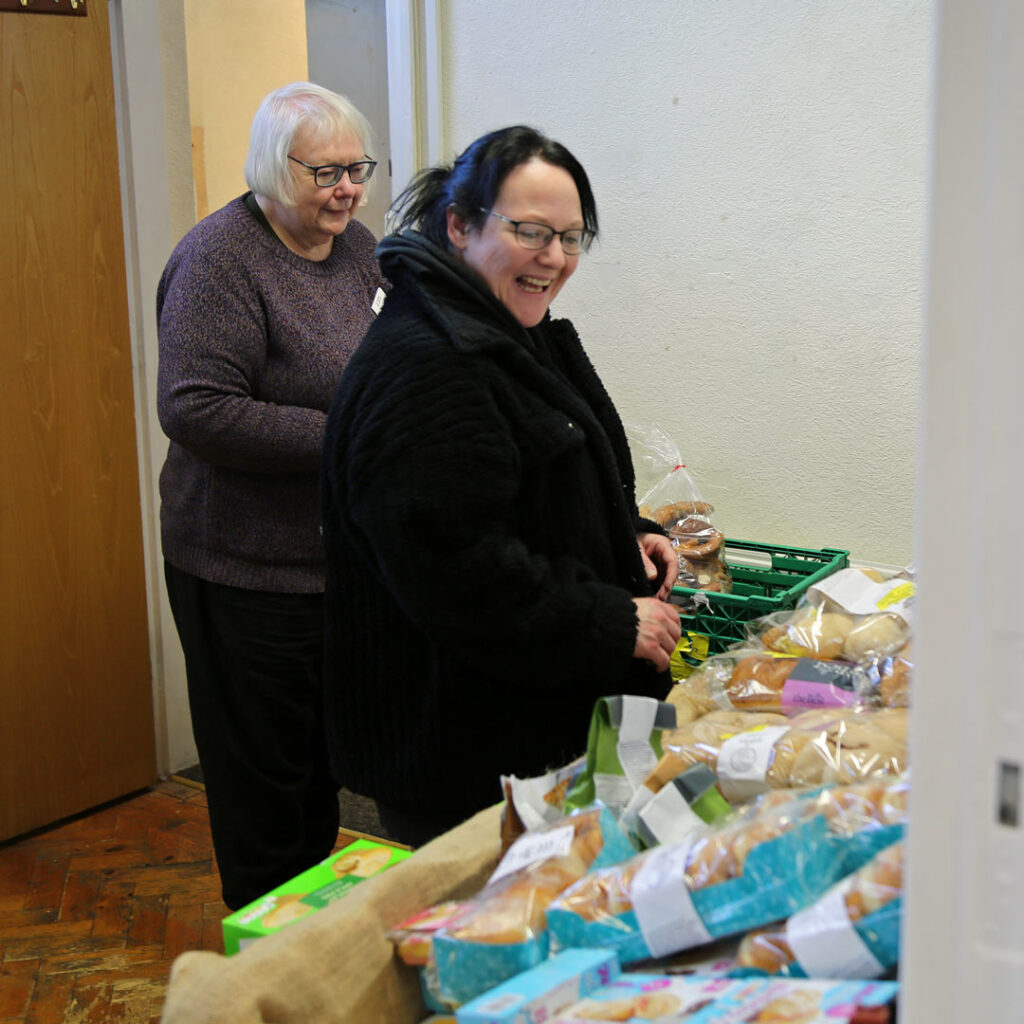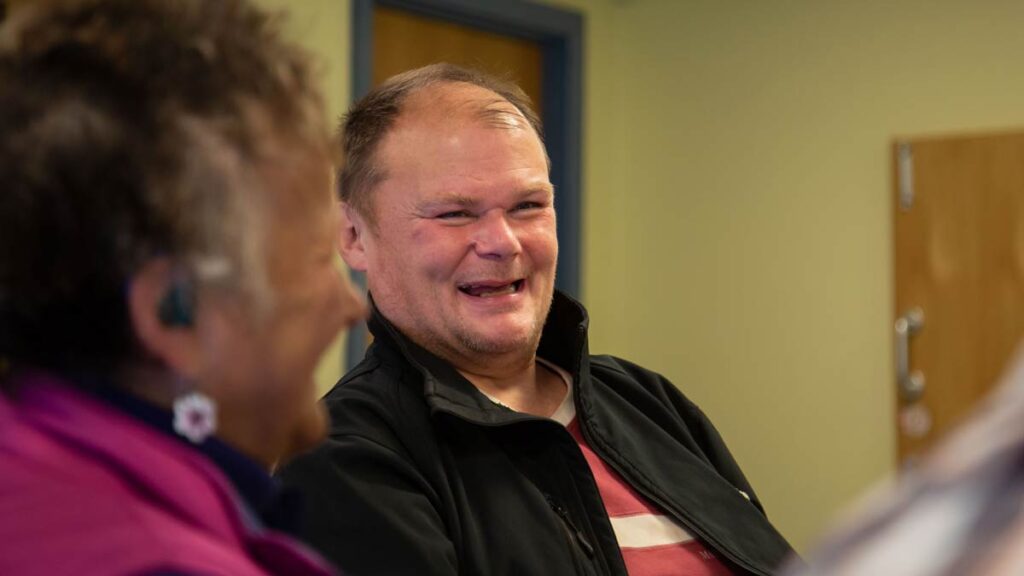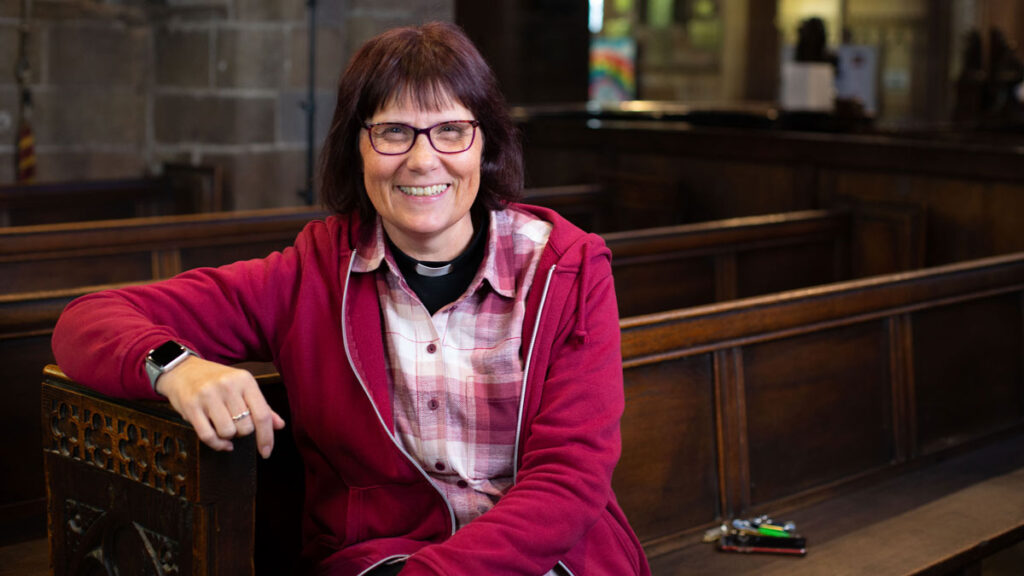“God has never turned his back on me”
Steve had reached the end of the road. But then he discovered Jesus never gives up.
“If it weren’t for them, I don’t think I’d be here, to be honest with you.”
Steve’s story
After several years of drug addiction, crime and homelessness, Steve felt he’d reached the end of the road. “I’d had enough. I was just getting nowhere… I was definitely planning on throwing myself into the Don.”
The Don is one of two rivers flowing through Steve’s home town, Rotherham. Rotherham was once a prosperous industrial centre. Steel mills and coal mining were core local industries. Not any more. Several Rotherham neighbourhoods are among the 10 per cent most deprived in the country. Health problems – both physical and mental – are a significant barrier to employment, leading in turn to financial difficulties. Steve isn’t the only one on the verge of losing hope.
But there is a twist in his tale.
“I did say a prayer, you know, so that God would help me.” A couple of days after this desperate prayer, Steve sat down on a bench outside Rotherham Minster, the church in the heart of the town. “And Ali come out of nowhere and said, ‘Do you want to come in for a cup of coffee?’ and it’s gone on from there.”
More than a market
Ali Middleton is a graduate of CMS’s pioneer mission training and associate vicar at Rotherham Minster and St Paul’s Masbrough. Since arriving in Rotherham, Ali has been part of the team running a social supermarket at the Minster.
The Minster team delivered food parcels during the first COVID-19 lockdown, and found, “People love the food, but actually what they really enjoyed was the chat on the doorstep.” When Ali started working at the church, they were asking: how can we meet social as well as food-related needs? Having seen a church in nearby Sheffield start something similar, they launched a social supermarket.

Ali explains: “A social supermarket works slightly different from a food bank. People are referred to us for around three months and during that time they pay a membership fee of £3 each visit, which entitles them to a weekly shop. They go over to our little shop and choose what to have. But we are just so much more than food, because food poverty is only one symptom of the situation.
“Our social supermarket members and volunteers, quite a few of them are what we would consider being on the edge of financial situations…. They feel forgotten [and] perplexed sometimes by society and systems and feel that it fails them…. People are wanting to have different lives. It’s just that they need a helping hand.”
Members of the social supermarket like Steve can get help with money management, be connected with other organisations including the Citizens Advice Bureau, and join a cooking course to help make the most of the food.
And community has developed too – while people come for a specific appointment in the shop, during opening times on Wednesdays and Thursdays people come into the Minster for hot drinks, snacks and a chat, and join in with community art projects.
Ali continues, “It’s amazing when you have people side by side doing things, how it opens them up…. We try to make it so that we’re being with people rather than doing for people. So although we provide the food, if everybody brings their talents and their skills, they’re part of what happens. And that is quite transformative.” Members are encouraged to stay involved, and several now volunteer.

So what change have they seen? “We’ve had people that have become more confident, people whose mental health has improved, people who have started their faith journey…”
Steve summarises: “It’s great, honestly. It helps a lot of people. And it’s like a gathering. We get talking, we have a cup of coffee and it’s a lovely day out.”
All to do with God
After people started asking questions about faith, Ali gave out some copies of Mark’s Gospel, and a Thursday group was formed to discuss their questions. Steve describes the Thursday group as the highlight of his week: “I’ve made new friends and it’s been great. I’m cleaned up from being on drugs and [I’ve] kept out of prison.”
People beyond the Minster community have noticed the change in Steve. A local police officer, a shop manager and Steve’s mother have all commented on how he looks healthier than he has for many years, now that he is off drugs, housed and looking after himself more.
Steve is clear about what drives the changes in his life: “Jesus has made a big difference to my life. Every time I read the Bible, there’s quotations there that make sense to me. I know God is helping me. I can feel his presence every day. It’s a struggle, but it’s helping. And for me to be clean off all that what I were on, it’s all to do with God.”
Seeing God afresh
Ali lights up as we ask how she sees God at work: “All the time…. And my understanding of God has changed as I’ve worked with people here. I’ve always known God is on the side of the poor, but I never really appreciated how much God reveals himself to people who are in poverty. And to see people who struggle with life to develop in their faith journey has helped me grow in my faith.”

Rotherham isn’t an easy place to work – and Ali credits her CMS training, particularly the module on community development, with helping her face the challenges. “My eyes were opened to the idea of encouraging people to bring what they have and allowing community to grow. I’ve been able to take those principles into what I do here.” Ali still connects with other CMS pioneer students to share questions and issues.
For Steve, this community is a lifeline, walking alongside him as he grows in faith. To give him the last word, “We turn our backs on God when something doesn’t go right. But then, I asked him to help me. I know I turned my back on God… but God has never turned his back on me.”
Jesus never gives up. Neither should we.